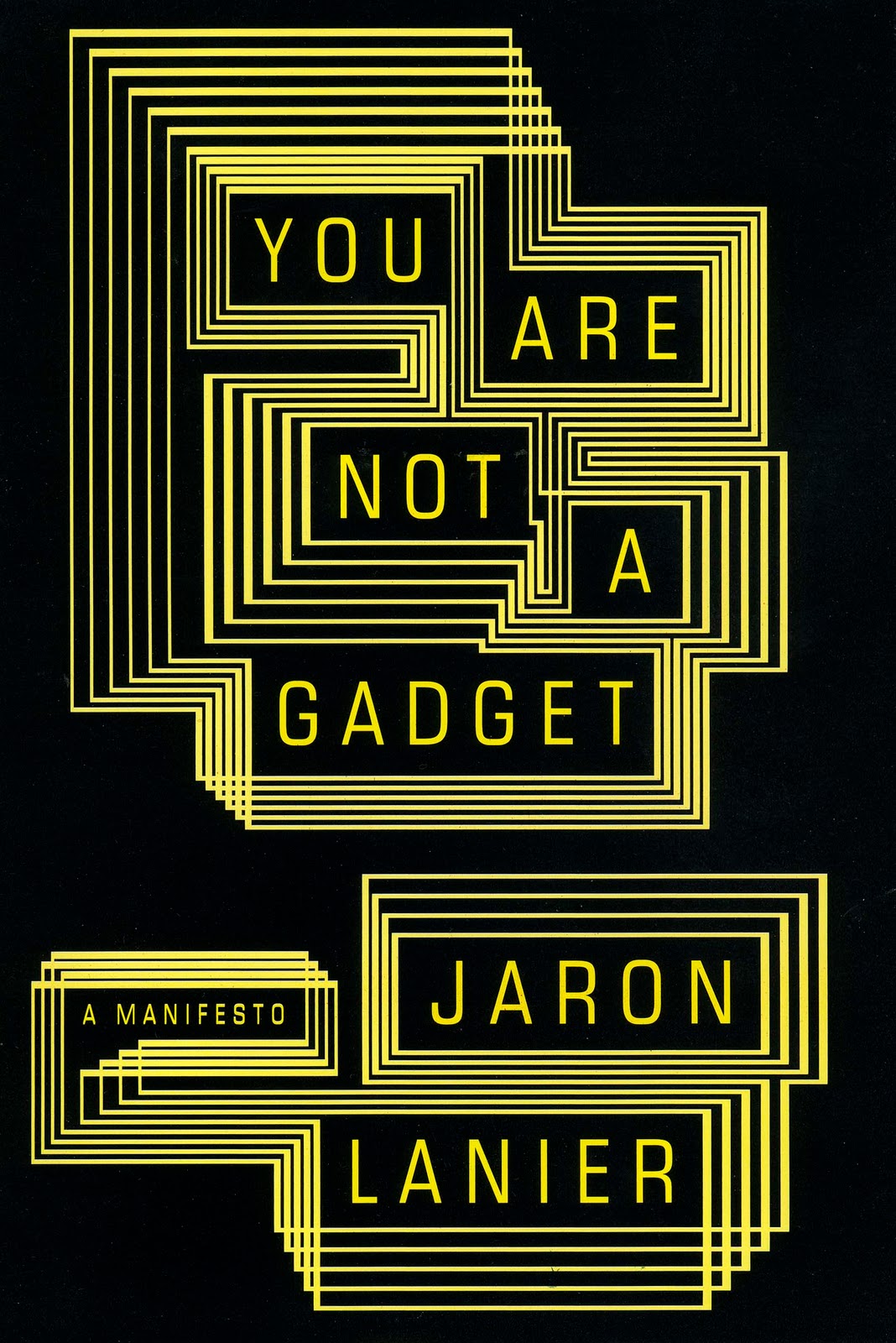 I discovered Douglas Rushkoff through Disinformation, a short-lived show referred to as “the punk rock 60 minutes.” The DVD includes a number of speeches from the Disinfo.con at New York’s Hammerstein Ballroom in 2000. Rushkoff pushed back against the idea of necessary duality, Grant Morrison explained basic sigil magic, and Joe Coleman detonated himself in protest of humanity. Pretty inspiring.
I discovered Douglas Rushkoff through Disinformation, a short-lived show referred to as “the punk rock 60 minutes.” The DVD includes a number of speeches from the Disinfo.con at New York’s Hammerstein Ballroom in 2000. Rushkoff pushed back against the idea of necessary duality, Grant Morrison explained basic sigil magic, and Joe Coleman detonated himself in protest of humanity. Pretty inspiring.
Rushkoff writes both fiction and nonfiction. He teaches at several schools and works as a consultant with organizations large and small, fringe and corporate. He is most often described as a media theorist, a cyberpunk, or a technologist, but a cursory look at his work reveals a thinker primarily concerned with how people create. Rushkoff writes about media and its effects on everything from the human brain to the global community. His latest 2 books focus largely on the digital economy.
Present Shock -2013
Table of Contents:
- Narrative Collapse
- Digiphrenia
- Overwinding
- Fractalnoia
- Apocalypto
Narrative Collapse speaks to the loss of basic foundation. The story, the plan, the beginning, middle, and end. Numeracy overtakes literacy. The distance and perspective of the reader is replaced by the immersion and interaction of the player.
Digiphrenia is the condition real people develop as we try to adapt to a world of digitized, automated, “always on” information. Our business, financial, and media networks are automated into 24-7 cycles that we compete to keep up with. Capitalist propaganda finds new life in our digital age. More choice = greater freedom. But are we free to stop choosing?
Overwinding deals with how our digital architects overlook the effect of their systems on the end-user in favor of instant feedback from every aspect of our lives.
Fractalnoia is another condition humans develop once they’re unmoored from reliable narratives, time tables, and information scarcity. Conspiracies abound, statistics overwhelm, all theories, fears, and prophecies seem to find supporting evidence somewhere just under the waves of the digital ocean. The sheer volume of information makes it impossible for even the richest, most entrenched organizations to control the narrative.
Finally, Apocalypto. The mass media disconnects us from the past and the future, locking us in an eternal present of fight or flight. We’re left to hoard and prep for the endgame. Many are seduced by a cult of human obsolescence that unleashes a cultural backlash against not only religion and politics, but humanism and free will as well.
These are the elements of Present Shock- a phenomenon wherein technology speeds up the rate of change in society, causing institutions- government, business, education, culture, media- to lose their foundations, leaving individuals in a desperate race to regain understanding, advantage, meaning, and a vision for the future.

Throwing Rocks at the Google Bus -2016
Table of Contents:
- Removing Humans from the Equation
- The Growth Trap
- The Speed of Money
- Investing Without Exiting
- Distributed
The underlying shift is away from Hours Served
and towards Value Created
This book examines our current economic moment and gives a brief history of how authorities devised debt-based tools to profit off the work and creation of poorer communities.
On corporate welfare:
“It would be much simpler, more sustainable, and less expensive to get that region to work without putting it into debt or the service of a remote entity. Instead of installing industry, equip regions with the tools and information they need to develop a means of value exchange. After all, if people have skills and needs, then they have the basis of an economy.”
Google Bus distinguishes itself from other books on the subject by reminding us that it doesn’t have to be this way. Rushkoff submits numerous examples of alternative corporate charters, local currencies, and new labor paradigms. Rushkoff’s worldview is optimistic, but it challenges the reader to take action. Not all the people at the top are unreasonable, but they are not going to change course until someone shows them how it will benefit them.
“The beauty of such possibilities from the perspective of charting a 21st century career, is that they offer a glimpse of an employment path structured around the needs of real people today rather than the priorities of 13th century factory owners who have long since left this realm. In nearly all these strategies, the underlying shift is away from Hours Served and towards Value Created. It’s less symbolic and more real, less based in legacy systems and more grounded in productivity. Instead of tying workers and our current entire economy to the industrial age machine, we reprogram our economy from the ground up.”
About time.
 Net Neutrality is the principle that makes the internet a level playing field concerning users' worldwide access to information. To abandon it puts all that power in the hands of internet providers, mostly telecommunications corporations like AT&T and Comcast. Here's a few articles about the FCC's efforts this week to destroy net neutrality and widen the digital divide.
Net Neutrality is the principle that makes the internet a level playing field concerning users' worldwide access to information. To abandon it puts all that power in the hands of internet providers, mostly telecommunications corporations like AT&T and Comcast. Here's a few articles about the FCC's efforts this week to destroy net neutrality and widen the digital divide.







